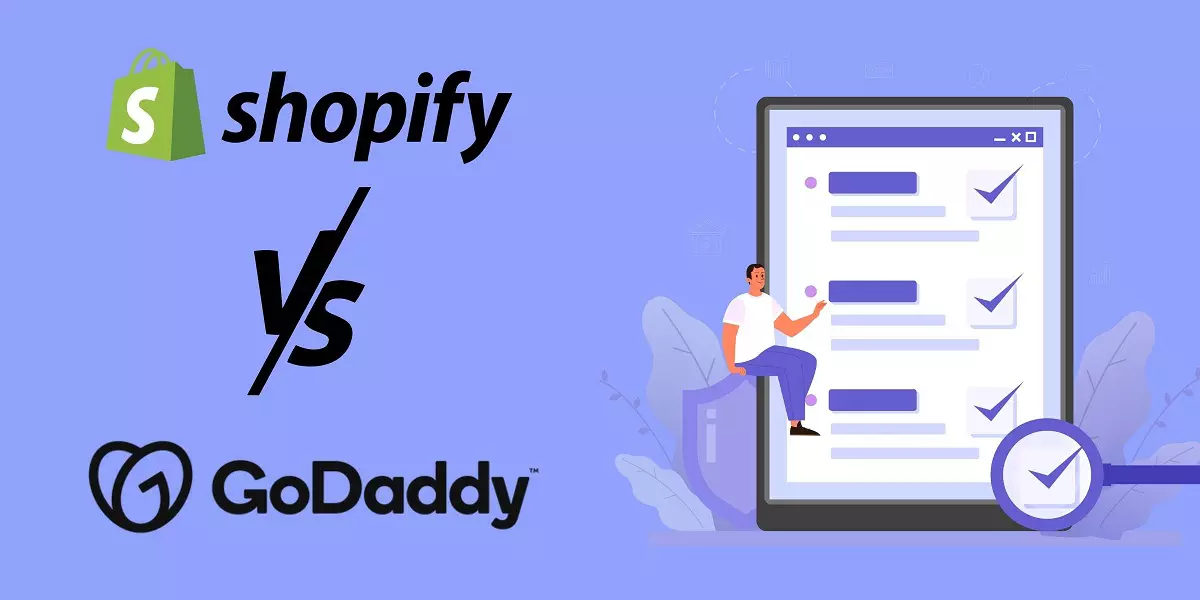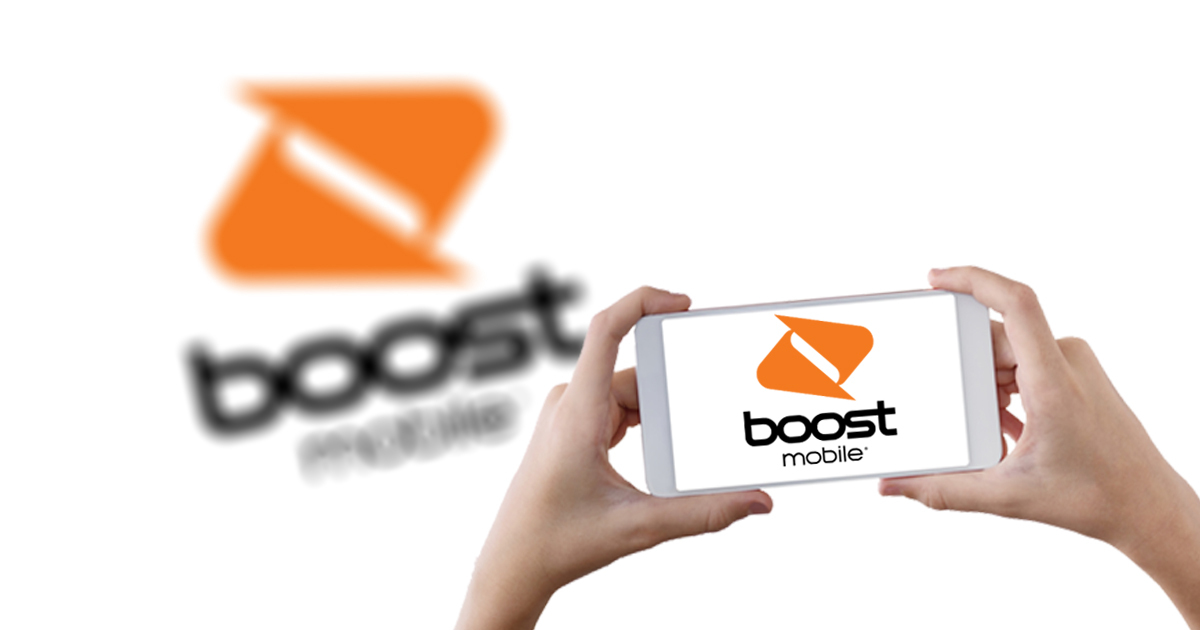Shopify Vs GoDaddy: The Battle of The Best Store Builder
The e-commerce landscape is vast and ever-changing. Businesses are seeking the ideal platform to support their online presence. That’s where a meticulous e-commerce platform comparison becomes crucial. It can impact its operational efficiency scalability and user experience. With many options businesses often grapple with discerning the best for their needs.
Shopify is a leader in the e-commerce realm. It has garnered acclaim for its suite of tools and features. The platform addresses the multifaceted challenges of online commerce. Whether it's inventory management or storefront designs Shopify seems to have an answer.
On the other side of the spectrum there is GoDaddy. It is a titan in domain registration and web hosting. It has expanded its horizons to offer an e-commerce solution. It promises a blend of simplicity and versatility for diverse industry requirements.
But this offering in both platforms can leave you in a fix about which one to pick. In this detailed analysis by The Nerd Series we strive to offer an in-depth review of Shopify vs. GoDaddy. We will dissect each platform's core features advantages and potential limitations. We want to empower you with the insights to navigate your online business journey. Here it goes:
A Quick Introduction
In e-commerce understanding the foundation and ethos of a platform is pivotal. It offers insights into the platform's reliability adaptability and commitment to user-centric innovations. A well-informed e-commerce platform comparison can make a major difference.
Shopify
Shopify was born out of a genuine need for a comprehensive e-commerce solution. It's an e-commerce platform and a holistic ecosystem. It can empower businesses of all sizes. It has a user-friendly interface a vast app marketplace and more. Shopify exemplifies a platform grown by understanding and addressing the needs of merchants.
GoDaddy
GoDaddy's foray into e-commerce is a testament to its adaptability. It recognizes the growing need for businesses to have an online storefront. That’s why GoDaddy has introduced its e-commerce solution. It has simplicity at its core. This ensures that even novices can set up and run their online store with minimal hassle.
Ease of Use
Time is of great essence in eCommerce. A platform's user-friendliness can influence how fast a business can set up and start. As businesses weigh their options ease of use emerges as a pivotal factor. It can impact efficiency and productivity.
Shopify
- Intuitive Dashboard: Shopify's dashboard offers clarity and simplicity. Even those new to e-commerce can navigate its features without feeling overwhelmed. This intuitive design ensures businesses can set up and manage online stores.
- Step-by-Step Guides: For those unfamiliar with processes Shopify offers step-by-step guides. Whether adding products or customizing the design these guides simplify the process.
- Drag-and-Drop Interface: Customizing the storefront is a breeze with Shopify's drag-and-drop interface. Store owners can adjust layouts add elements and personalize their store's look. This makes Shopify a top contender in the best store builder comparison.
GoDaddy

- Customization at its Core: GoDaddy's website builder offers extensive customization options. Users can add or edit sections like image galleries price lists and menus. The platform even supports embedding multimedia elements like YouTube or Vimeo videos.
- Adaptable Design: Every section of a GoDaddy-built website is customizable. From the page name to the navigation bar businesses can tailor the site to their brand's identity.
- Mobile and Desktop Layouts: GoDaddy recognizes the importance of a mobile-responsive design. It allows users to switch between mobile and desktop layouts. It ensures that websites provide an optimal viewing experience across all devices. It can reinforce its position in the Shopify vs. GoDaddy review.
Plans
Choosing the right plan for an e-commerce platform is pivotal for businesses. The selected one determines the features and tools they can access. It can impact their operational efficiency and scalability options. A detailed breakdown of plans ensures businesses can make an informed decision. It can align with their specific needs and budget.
Shopify
- Pricing: The Basic Shopify plan starts at around $39/month.
- What it includes: This plan can help establish their online presence. It has all the essential features like an online store unlimited products and 24/7 support.
- Options: Shopify offers a range of plans from basic to advanced. They cater to businesses of varying sizes and requirements. Each comes with its set of features and tools. This can ensure businesses can choose one that aligns with their needs.
GoDaddy
- Starting Price: GoDaddy's Online Store plans start from $9.99/month for the basic tier.
- What it includes: The basic plan provides website-building tools product listings and SSL.
- Options: GoDaddy offers many tiers for its online store plans. As businesses grow and their requirements evolve they can opt for higher-tier plans.
Design Winner
The design of an online store is a critical factor in the e-commerce platform comparison. An appealing design can enhance the shopping experience. It can lead to higher conversions and customer retention. When looking for the best store builder businesses often want design flexibility.

- Shopify: Shopify is a frontrunner in the online store platform Showdown. It offers many customizable templates. These designs come from world-class designers. They ensure businesses can create an online storefront to resonate with their brand. The platform's drag-and-drop editor allows a seamless design experience. That is even for those without coding expertise.
- GoDaddy: GoDaddy is another contender in the Shopify vs. GoDaddy review. It provides a range of industry-specific themes. These can result in a quick setup and simplicity. Their intuitive editor blends with an AI-powered design feature. This ensures businesses can establish a professional online presence.
Help and Support
In the e-commerce platform comparison help and support can affect its reputation. Businesses need assurance of a responsive support team to turn to. This aspect is crucial in the best store builder comparison. It can impact business operations.
- Shopify: Shopify offers a robust support system. With 24/7 customer support businesses can rest assured about addressing queries. The platform also offers a wealth of resources. This can help users to navigate any challenges.
- GoDaddy: GoDaddy is a significant player in the online store platform showdown. It emphasizes its commitment to user support. Their "HELP CENTER" can provide timely help. This can ensure businesses operate their online stores and tackle challenges head-on.
Mobile Responsiveness
In today's digital age most online shopping happens on mobile devices. This makes ensuring an online store mobile-responsive a necessity. This can even influence user experience and sales conversions.
- Shopify: Shopify understands the importance of mobile commerce. It’s known that Shopify offers mobile-responsive themes. This ensures online stores look and function on all devices. Additionally Shopify provides a mobile app. This can allow store owners to manage their business on the go.
- GoDaddy: GoDaddy's website builder comes with mobile responsiveness in mind. It ensures that websites built using their platform can go well with mobile devices. That provides users with a seamless browsing and shopping experience.
Integration Capabilities
In today's interconnected digital ecosystem integration of various tools and platforms is paramount. This capability can elevate the functionality and efficiency of an online store. That makes the e-commerce platform comparison essential. From automating marketing efforts to streamlining inventory management integrations can be helpful. When businesses embark on the best store builder comparison integration capabilities can matter.
Shopify
Shopify is a prominent name in the online store platform Showdown. It boasts an extensive integration ecosystem. Their comprehensive app store offers a plethora of integrations across diverse categories:
- Marketing Tools: Shopify's advantage lies in its ability to integrate with marketing platforms. This can allow businesses to automate campaigns and tap into larger audiences.
- Inventory Management: It has integrations to leading inventory management tools. With this Shopify ensures businesses can keep a real-time tab on stock levels. It can also manage suppliers and optimize warehousing.
- Payment Gateways: Shopify's payment gateway integrations ensure diverse payment options for customers.
- Customer Support: It can integrate with top-tier customer support tools. With it Shopify ensures businesses can assist their clientele.
GoDaddy
GoDaddy is another heavyweight in the review circuit. It ensures its website builder is ripe for integrations:
- Social Media: GoDaddy's prowess in the online store platform showdown is well known. It becomes evident with how it can connect online stores with social media platforms. This can amplify reach and engagement.
- Email Marketing: You can expect integrations to leading email marketing tools. So you can craft impactful campaigns nurture leads and drive conversions.
- Analytics: GoDaddy's integration capabilities extend to analytics tools. This empowers businesses to check performance gain insights into customer behavior and plan.
Security Features
In today's digital landscape ensuring robust security features is paramount for online businesses. When evaluating the e-commerce platform comparison businesses want platforms that protect their assets.
Shopify
- SSL Certificates: Shopify provides a free SSL certificate. It ensures encrypted data transfer and enhances customer trust.
- Fraud Protection: With built-in fraud analysis Shopify alerts store owners of fraudulent orders. That helps them make informed decisions.
- PCI Compliance: Shopify's Level 1 PCI DSS compliance ensures credit card data security.
GoDaddy

- Website Security: GoDaddy offers malware scanning and removal. That ensures websites remain free from threats.
- SSL Certificates: GoDaddy's SSL certificates ensure encrypted connections safeguarding customer data.
- DDoS Protection: GoDaddy's resilience against DDoS attacks ensures uninterrupted website performance.
SEO and Marketing Tools
Driving organic traffic is pivotal for the success of an online store. Effective SEO can elevate a website's visibility on search engines increasing sales. Integrated marketing tools are a consideration for the best store builder comparison.
Shopify
- SEO Optimization: Shopify's built-in SEO features like meta tag editing and URLs. It can ensure improved search engine rankings.
- Integrated Blogging: Shopify's blogging platform aids in driving organic traffic. It can enhance the store's online visibility.
- Marketing Integrations: Shopify supports integrations with marketing platforms. It can allow businesses to run targeted campaigns.
GoDaddy
- SEO Wizard: GoDaddy's SEO Wizard guides users through the optimization process. It suggests improvements for better search rankings.
- Email Marketing: GoDaddy has integrated email marketing tools. It can ensure businesses engage and nurture their audience.
- Social Media Integration: GoDaddy ensures seamless connectivity between online stores and social platforms. It can enhance reach and engagement.
Conclusion
Selecting the right e-commerce platform can be daunting. This can especially happen with so many robust options available. In our comparison Shopify and GoDaddy have showcased their strengths and offerings. Shopify excels with its extensive app integrations and security features. But GoDaddy shines with its design and SEO tools.
For small businesses and entrepreneurs the choice boils down to needs and preferences. If you're looking for a platform with a vast ecosystem of apps and a focus on scalability go for Shopify. If you focus on ease of setup and integrated marketing tools GoDaddy could be the perfect fit.
Both platforms can provide a seamless e-commerce experience. It's all about finding the one that aligns best with your business goals and vision. Remember in the online store platform showdown there's no one-size-fits-all answer. It's about finding the platform that feels right for you.
Thank you for joining us on this deep dive at The Nerd Series. We hope this Shopify vs. GoDaddy review has provided clarity. And it will assist you in making an informed decision for your online business journey.






